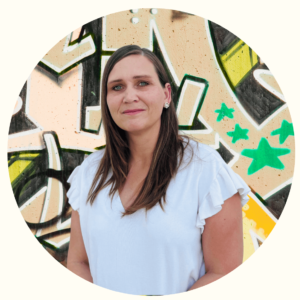Self-Acceptance Leads Promotes Health

Summary: In her journey with Type 1 Diabetes, the author initially avoided self-compassion, fearing it would hinder her productivity. Encouraged by Kristin Neff’s book, she discovered its benefits—lowering glucose levels and promoting well-being. Embracing self-kindness, recognising shared humanity, and practicing mindfulness, she found self-compassion crucial for self-acceptance and proactive health choices, leading towards healing.
Self-compassion. Urgh. A topic like this is one that I steered away from for many years. I had the attitude that self-compassion was the route to self-destruction because, after all, if I’m being kind to myself, I’ll just likely slack off (even more!) from whatever I’m doing and get less and less achieved with this short life of mine. I spent my twenties running at full pelt and feeling continually frustrated that I just wasn’t getting enough done. Whatever ‘enough’ meant!!
I think part of that was a kind of survivor’s guilt. Every time I survived a hypo, I felt it was a message to me that I had survived this and therefore had something important to do in my life. I also felt that I had an I.O.U. for whomever was standing around me at the time I passed out. Their stress was owed something in return.
As you can probably tell, self-compassion has probably been the bottom item on my to-do list for a very long time. So why am I writing this blog post now? I guess those times are a-changing!
I have just read Kristin Neff’s book ‘Self-Compassion: The Proven Power of Being Kind to Yourself’. It was recommended to me a while back by a coach I was working with. As is usual for when I read a book, I picked it up and flicked through it, then chose another book to flick through instead! But something kept calling me back to it. I guess my inner workings (for those with a spiritual outlook, I would use the term ‘soul’) called me back to it. My soul knew there was a message in there for me. And there was.
When I sat down to read this book, my interest was immediately sparked by this quote:
“MSC [Mindful Self-Compassion] increases… physical health (one study with diabetes patients found it reduced glucose levels).” (p. viii in Neff, 2021)
Wow! So practising self-compassion gives me a tool to reduce my glucose levels and therefore reduces the amount of insulin I’ll need to take on a daily basis…? This seemed like a worthwhile tool to add to my armoury, my way of life, for getting off of insulin.
What Is Self-Compassion?
Kristin Neff (2021. p. 41) has found from her research that self-compassion comprises three elements:
1. Self-kindness
2. Common humanity
3. Mindfulness
To be self-compassionate, is to live a life that engages these qualities most of the time. I will therefore discuss each of these qualities now.
Self-Kindness
“Self-kindness… means that we stop the constant self-judgment and disparaging internal commentary that most of us have come to see as normal… It [also] involves activelycomforting ourselves, responding just as we would to a dear friend in need.” (Neff, 2021, p. 42).
I do not, however, yet actively comfort myself when in need. Kristin Neff (pp. 49-50) highlights how self-hugging is a really effective tool for soothing ourselves. It releases oxytocin, which calms cardiovascular stress and increases feelings of love and bonding (see my post here on hugging). On top of this, self-soothing (and therefore self-hugging) also switches off the fight-or-flight response, which is responsible for increasing blood pressure, adrenaline and cortisol in our system (Neff, 2021. p. 48) (see my post here for more information on the fight-flight response).
We already know that cortisol and adrenaline cause body tissues to be less sensitive to insulin so insulin resistance increases, plus a spike in these neurotransmitters also causes a release of more glucose from the liver. A double hit to our blood sugars! So a self-hug is the protective measure against these.
Common Humanity
“The second fundamental element of self-compassion is recognition of the common human experience.” (Neff, 2021, p. 61).
When we ponder this for a while, we can see that we can’t blame ourselves for our failures. The person we are today has been created by a million previous experiences. How we react to today is constructed from the inputs of ourselves and other people in previous times. So how can blame ourselves for our reactions, our outlook, our fears, even the people we love. We are so entwined with the rest of the world that this portioning out of blame is nonsense. Saying that, that does not mean we are free from personal responsibility and accountability. We can still play our part, and should play our part, in our lives. We still have an impact on others that should be considered. But, where that impact is less than desirable, self-compassion is necessary. As Kristin Neff (2021. p. 65) said:
“If we can compassionately remind ourselves in moments of falling down that failure is part of the shared human experience, then that moment becomes one of togetherness rather than isolation.”
Mindfulness
The last component of self-compassion that Kristin Neff (2021) has identified through her research is mindfulness. She defines this as:
“the clear seeing and nonjudgmental acceptance of what’s occurring in the present moment”. (p. 80)
In those moments of rage, despair, anger, fatigue, when maybe our behaviour does not reflect the soul we truly are, we need to first see that we are suffering. Our pain comes from suffering. Kristin Neff (2021, p. 81) highlights the crucial difference: that of needing to focus on our pain caused by the failure, not the failure itself. I know personally that, in the heat of the moment, when tempers are high, this is so hard to do. But I guess that this is where the first two components come in… If I can be kind to myself in those moments, rather than judgemental, and if I can see that this happens to all humans, not just me, then I suspect that it will then be easier to be mindful of the pain that I am suffering in that moment. It is then that I can reach for self-love, rather than self-hate. As Kristin Neff (2021, p. 113) puts it:
“We balance the dark energy of negative emotions with the bright energy of love and social connection”.
Practices That Promote Self-Compassion
Kristin Neff’s (2021) book is full of examples of ways to practice self-compassion in our lives. It also contains a series of specific exercises that enable us to access this state. For these alone, I highly recommend buying this book. Some of my favourites (noted here as a memory prompt for me!) are:
- Practising Metta (loving-kindness) meditation (Neff, 2021, pp. 211-212)
- Silent prayer
- Solitary walks in the woods
- Becoming aware of the physical sensations in the body during times of stress or distress (Neff, 2021, p. 112)
- The Pleasure Walk exercise (Neff, 2021, p. 253)
Type 1 Diabetes And Self-Compassion
I believe that having self-compassion is particularly challenging when you have Type 1 Diabetes. There are many overt and covert judgements that are made throughout your life with this condition. These include judgements about:
- How well or not well you are deemed to be controlling your diabetes
- Any additional health issues that arise out of this condition
- What you are or are not eating at any point in time
- How much you weigh
- At doctors appointments, where you are told how you can do better or what you have done ‘wrong.
- Developing T1D in the first place.
To stand in the face of these criticisms and be okay with yourself is a true act of self-love and self-compassion. It is a choice for peace and happiness in your life and acceptance of what is. That self-compassion then enables you to choose health and wellbeing for yourself and choose the proactive behaviours that support that desire (Neff, 2021, p. 12). And that can lead to healing.
Metta
Kristin Neff (2021) offers several versions of Metta, a kind of loving-meditation practice, in her book. However, I choose to end this article with a version I was given by a yoga teacher many years ago. I offer this to you with love and compassion:
Simply recite this to yourself, preferably on a daily basis but whenever you can, to give more compassion to yourself and others in the world. Try to really feel that love and compassion as you recite each verse:
For yourself, recite:
May I be happy and peaceful.
May I be healthy and at ease.
May I be able to take care of myself joyfully.
May I possess the wisdom, courage, and determination to meet and overcome problems and obstacles in my life.
Then, for someone you really respect who is not a partner or family member:
May they be happy and peaceful
May they be healthy and at ease
May they be able to take care of themselves joyfully
May they possess the wisdom, courage, and determination to meet and overcome problems and obstacles in life.
Next, a beloved family member:
May this family member (name) be happy and peaceful
May they be healthy and at ease
May they be able to take care of themselves joyfully
May they possess the wisdom, courage, and determination to meet and overcome problems and obstacles in life.
Next, a neutral person:
May this neutral person (name) be happy and peaceful
May they be healthy and at ease
May they be able to take care of themselves joyfully
May they possess the wisdom, courage, and determination to meet and overcome problems and obstacles in life.
Next, all beings:
May all beings be happy and peaceful
May all beings be healthy and at ease
May all beings be able to take care of themselves joyfully
May all beings possess the wisdom, courage, and determination to meet and overcome problems and obstacles in life.
Lastly, return again to the self:
May I be happy and peaceful.
May I be healthy and at ease.
May I be able to take care of myself joyfully.
May I possess the wisdom, courage, and determination to meet and overcome problems and obstacles in my life.
Metta. xx
Bibliography:
Neff, K. (2021). Self-Compassion: the proven power of being kind to yourself. Great Britain: Yellow Kite.

GET HEALINGT1D’S FUTURE ARTICLES IN YOUR INBOX!
Get the latest musings and findings straight to your email inbox.

Natalie is a blogger with Type 1 Diabetes. Natalie’s special gifts are questioning the status quo and being a rebel. She is using these gifts to question medical ‘knowledge’ and find a true cure for Type 1 Diabetes.

Recent Comments: